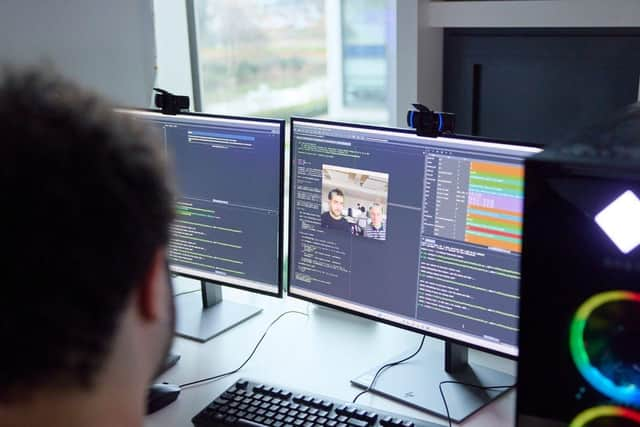Research will help understand people in the cyber sector who are neurodiverse
and live on Freeview channel 276
New research from University of Northampton is looking to understand neurodiversity within the cyber environment.
The findings will inform better support for people who are neurodiverse and who study or work in the computing and gaming sectors, or have skills or interests in those areas.
Advertisement
Hide AdAdvertisement
Hide AdMembers of the Learning Disability Nursing team need people to complete a short survey to help them better understand their experiences of cyber education and cyber employment. They are looking for both neurodiverse and neurotypical participants.


Neurodiversity describes the unique ways that our brains work. Being neurodivergent means someone’s brain works differently from the neurotypical person – for instance, people who are autistic or who have ADHD.
The researchers are looking for all people – whether they are neurodivergent or not – to share their views in an online survey for a new research project. Volunteers need to be those who:
- Are working in the cyber industry.
- Are studying for a degree in the cyber sector.
- Have cyber skills/interest.
The online survey takes about 20 minutes to complete and there is the opportunity to win one of 10 £50 Amazon vouchers in a prize draw.
Advertisement
Hide AdAdvertisement
Hide AdResearch lead Dr Katy-Louise Payne says: “Neurodiversity is an asset. We want to understand whether neurodiversity is more common in the cyber environment and to understand the challenges and examples of good practice people have experienced.
“We want to be able to inform support to enable neurodivergent people the best opportunity to engage with the career path that they wish to persue. We are looking to publish our findings by September 2024.”
Complete the survey here. If you have any questions, please email [email protected]